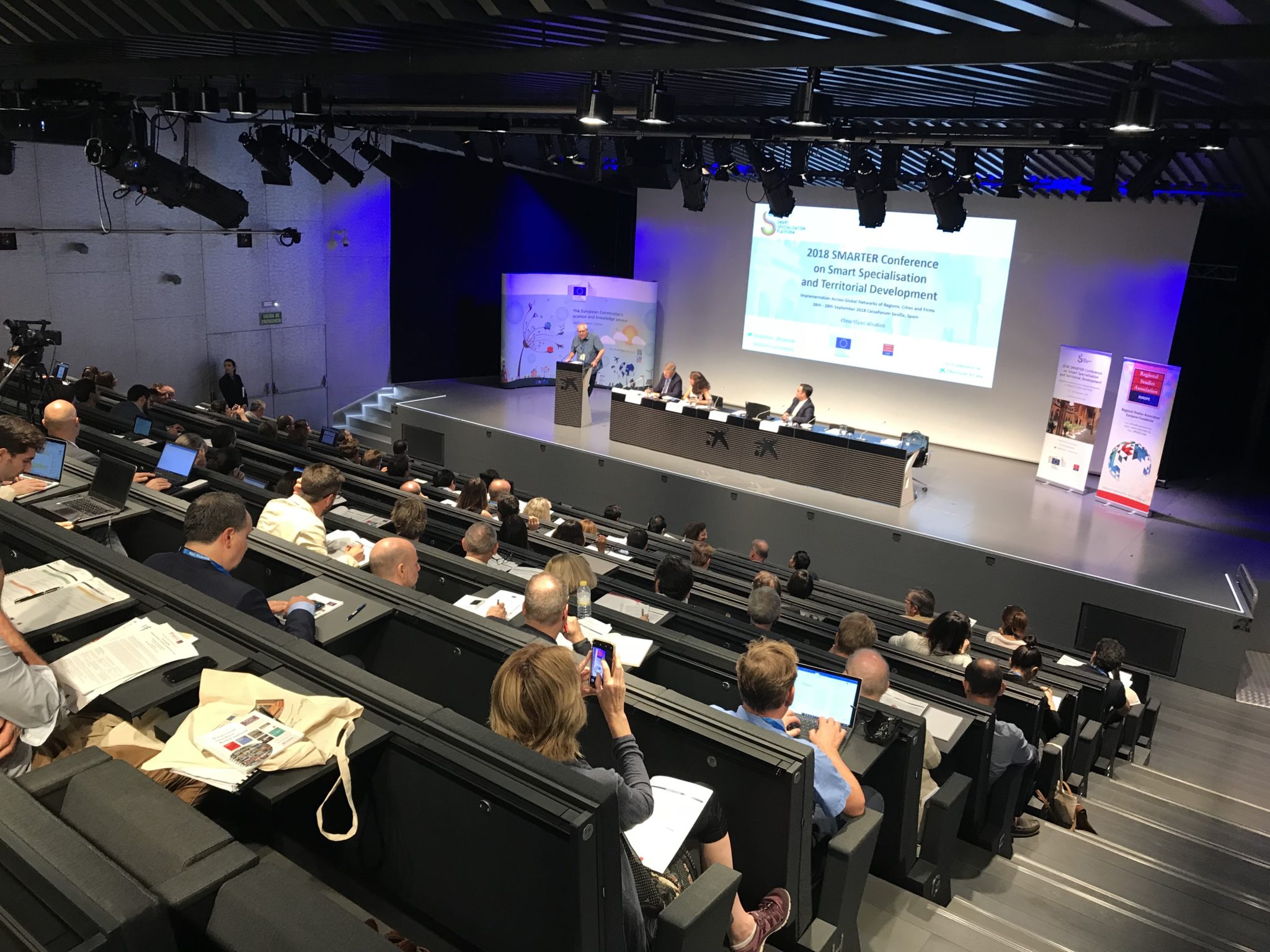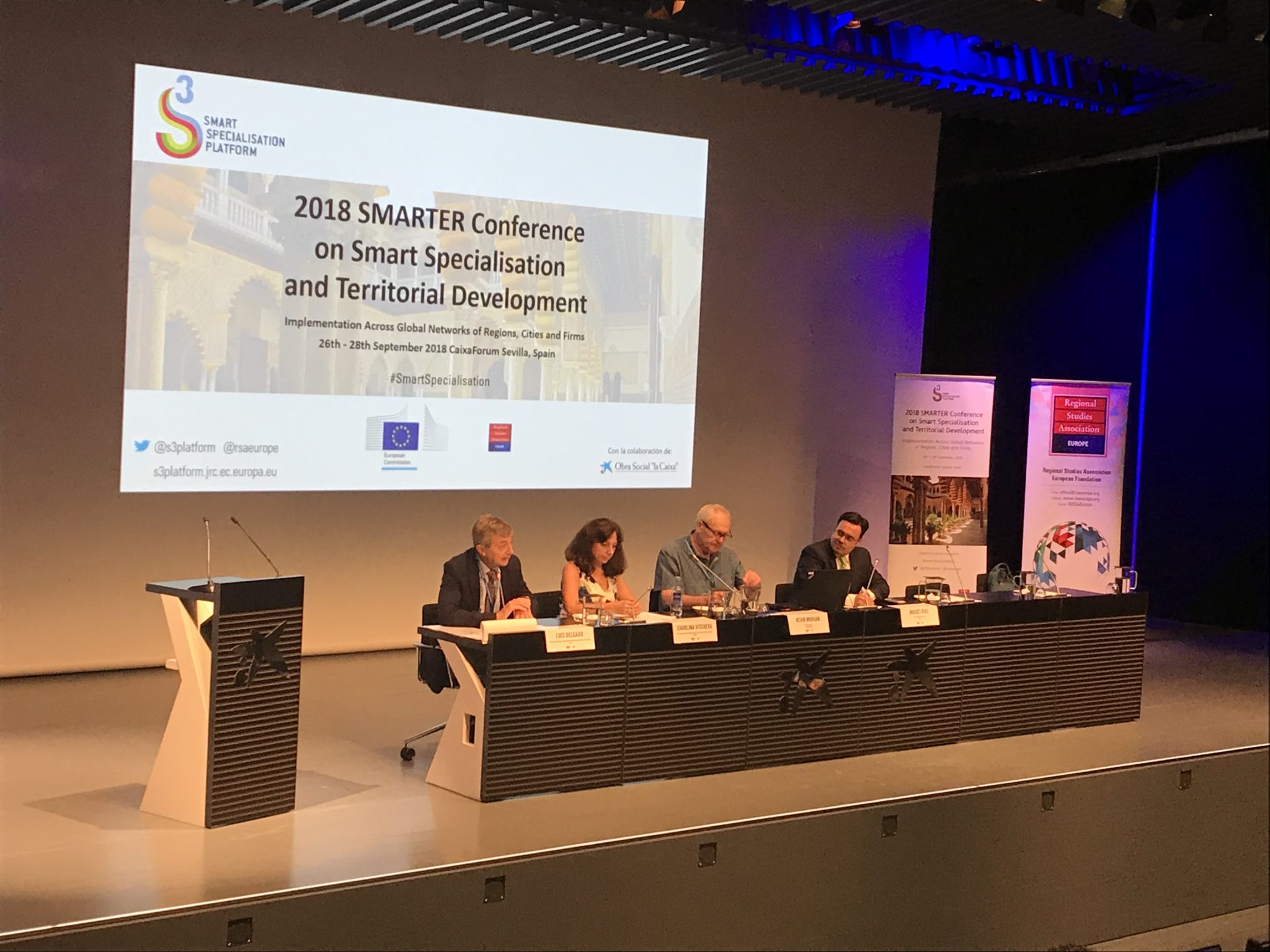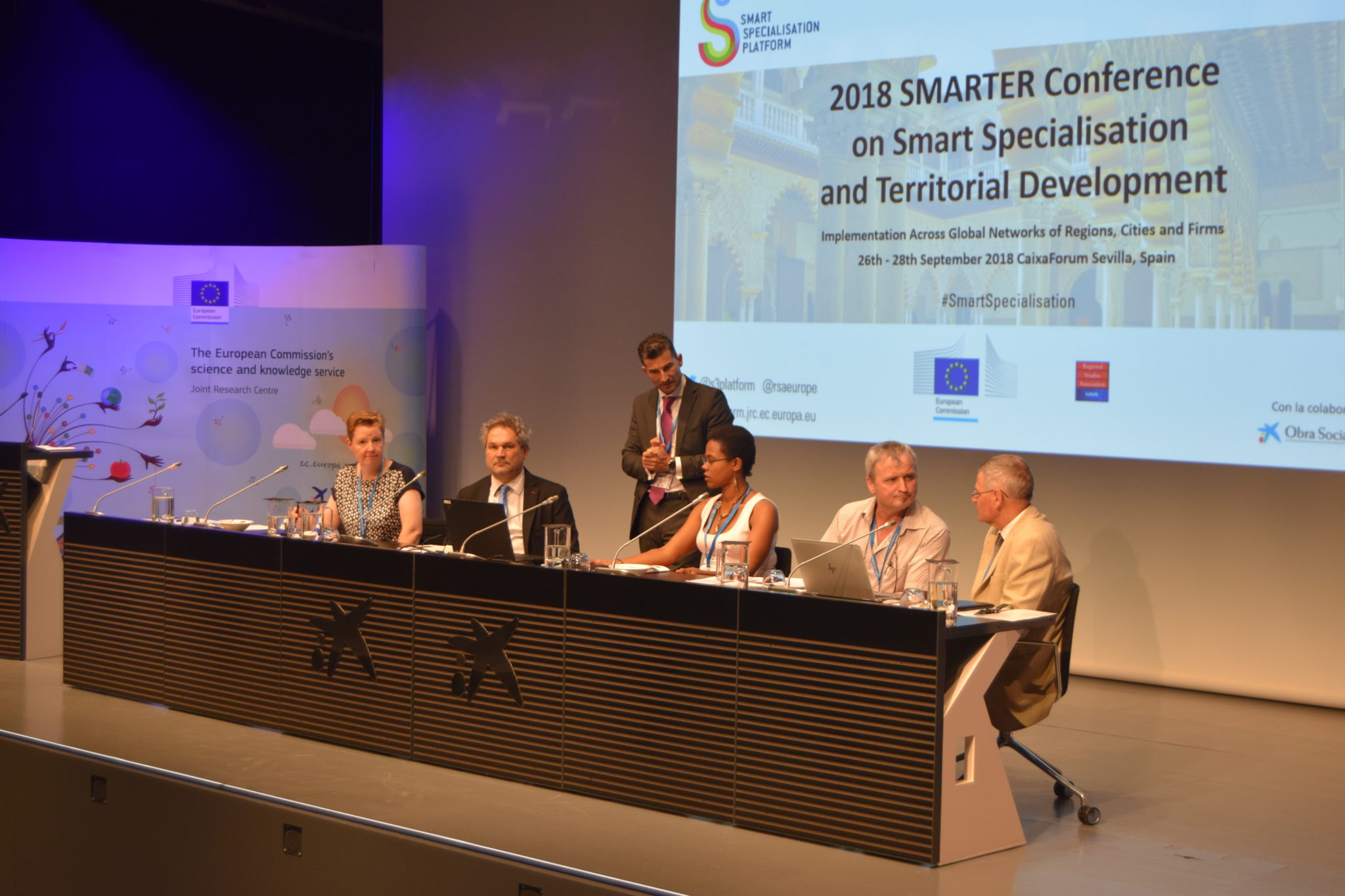Report on Smart Specialisation and Territorial Development: perspectives from Latrobe Valley Authority

By Karen Cain (Chief Executive Officer, Latrobe Valley Authority, Department of Premier and Cabinet, the State of Victoria, Australia)
The importance of cross global collaboration was highly evident at the ‘2018 SMARTER Conference on Smart Specialisation and Territorial Development’ recently held in Seville, Spain. As one of the many international participants, and in particular one that attended on behalf of a region undergoing transition in Australia, this conference provided a wealth of knowledge and practical experience in ‘transformational activities that are concrete and real’ (Dominque Foray, Keynote speech titled ‘Smart Specialisation: a policy approach “made in the EU” gaining worldwide interest, Smart Specialisation from the EU to the world’).

It is this understanding of the reality and the practical application of research and innovation Strategies for Smart Specialisation (RIS3), through things that matter to local people, and in the case of the Latrobe Valley (a community located in the State of Victoria about 150 km from Melbourne in Australia), the implications for state policy designers as a breakthrough in policy mindset, that really resonated. The Latrobe Valley Authority, established to ‘do things differently as a government agency’, has built into its DNA to work with, and for, its community focussing on strengths and opportunities through collaboration and innovation (Latrobe Valley Authority Statement of Direction 2017-2022). Therefore the messages of connecting people across sectors in the pursuit of building coalitions for place-based, localised innovation has reinforced and affirmed the direction of the Authority and provided an excellent evidential platform for challenging the status quo regional policy design at a state level. It has also provided a method of collaborative partnership and a way of working that makes sense to the lead agencies in the community that already employ innovative governance arrangements such as clusters, but lack a systemic approach to innovation.

Given the Authority is working in a rural region undergoing transition from an economy built on coal, impacted by privatisation and job losses, alongside an established agricultural produce industry, the message regarding ‘Why Places Matter’ was of particular importance. The value that local people place on the perceptions that others have of them from a central city base does matter and is a significant mindset that the Authority is tackling, from both within the local community and through state government policy and perspectives. Hence the research and thinking behind a different policy, away from simply providing ‘welfare, sheltering, hand outs and big, visible white elephants’ to a policy based on a genuine understanding that ‘places really do matter’ is critical for informing a change of practice (Andrés Rodríguez-Pose, London School of Economics, United Kingdom Why places matter: The geography of discontent and the revenge of the places that don’t matter).
What became abundantly clear as the Conference progressed was the importance of the very nature of this practice change. At the heart of what the Authority has been testing and refining is the way in which people engage and work together on things that matter together. This was highlighted through the discussion on ‘accountability versus experimentation’ and in the case of the Authority, the opportunity to take action-learning principles and learning networks as the new governance arrangements locally, building in adaption and direct impact evaluation along the way (Slavo Radosevic, University College London, United Kingdom Towards Smart specialisation 2.0: challenges for less developed and low institutional capacity regions). In addition, the Authority is playing an important role as an arm of the highest level of state government bureaucracy, located as it is within the Department of Premier and Cabinet. We have the opportunity to push in on standard public sector attitudes and practices to the point of demonstrating real impact and benefit through specific community partnership led priorities and actions through a ‘non-business as usual’ way of working.
Discussion at the Conference about moving to Smart Specialisation 2.0 provided the link from the ‘now’ to a fast-moving future and the importance once again of the global context, particularly for technology, demographic and social change. Important to the work of the Authority is creating conditions for local community history, knowledge, experience, values and views to embrace global challenges and opportunities including use of data, digitalisation, technological and economic, social and environmental innovation through careful design based at the local level, hence ensuring the best possible chances of competitiveness and sustainable prosperity (Peter Berkowitz, European Commission, Directorate General for Regional and Urban Policy, Belgium EU Budget for the future. Moving to smart specialization 2.0). Complementary to this was a very clear message from a range of Conference contributors of the importance of granularity of focus for development (Martin Eichler, ‘S3 implementation and the correct level of granularity’, Session A, 26 September 2018). The role of ‘differentiation’ and ‘specialisation’, as applied to concentration on a few critical domains, was a strong theme and in particular, the importance of identified elements for success – such as the number of activities in place and consequent density – was emphasised. For the Authority in the early stages of applying S3 practice, the importance of this is under consideration as is how to grow the number of specific industry linked partnerships across a geographically and socially dispersed community.

It is also recognised that opening up collaboration across borders and networks for sharing resources as a global community will lead to benefits for all. This Conference certainly demonstrated the value of building these relationships and shared agendas for change. The concept of ‘strategic coupling’ within and across regions to connect partners, suppliers and other actors to create dynamic networks is clearly critical to harness the benefit of shared efficiencies, expertise, market access, technology application etc.
Relationships and trust have to date been fundamental to the work of the Authority, staffed by a majority of local people with wide connections in the region. The Conference confirmed how critical the role of relational and collaborative leadership and governance are to the success of S3 implementation, and affirmed the skills required for this. Careful design of engagement based on already established relationships led through early governance arrangements has been the key to progress of S3 in the region to date. With the ability and authority to engage with and involve senior public sector support, the Authority has been able to link from the beginning, senior central government actors in direct governance arrangements through the Gippsland S3 steering committees.
One of the challenges faced in implementing the best of S3 is recognizing and dealing with the long embedded practice of linear policy design and planning practice that exists across most levels of government activity and strategy development experience. The desire for quick, simple fixes usually with an infrastructure overlay has been at the heart of local and most other actors’ experiences. Introducing and staying true to a ‘learning by doing’ process of trial and error with solutions that evolve and are co-constructed rather than being imposed will take time to deliver through change of attitude based on demonstrated benefit (Pedro Marques and Kevin Morgan: The Realities of RIS3: Implementation Gaps Between More and Less Developed European Regions).
If successful, the Latrobe Valley Authority intends to change the way it’s region thinks, acts and connects for the long term, and ensure it is a region that collectively innovates as a matter of course, for every citizen’s benefit, as well as one that provides ‘something special’ for the rest of the world.
The ‘2018 SMARTER Conference on Smart Specialisation and Territorial Development’ certainly provided the knowledge and motivation to make sure this happens.